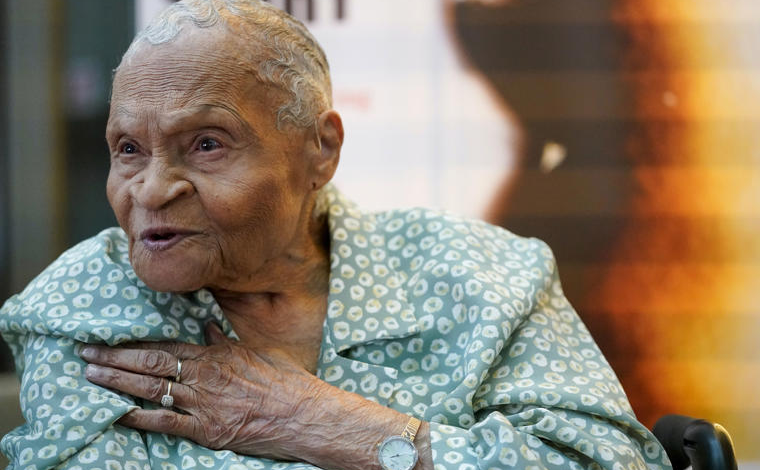Top Stories
Last Known Survivors of Tulsa Race Massacre Challenge Oklahoma High Court Decision

In a pivotal moment for justice and historical reckoning, the last known survivors of the Tulsa Race Massacre are challenging a recent decision by the Oklahoma Supreme Court. The court’s ruling has significant implications for the ongoing efforts to secure reparations and recognition for the victims of one of the most devastating racial violence incidents in American history.
- The Survivors: The last known survivors of the Tulsa Race Massacre, now over 100 years old, have been steadfast in their pursuit of justice. They are seeking reparations and acknowledgment for the atrocities committed against the Black community in Tulsa’s Greenwood District in 1921.
- Court Decision: The Oklahoma Supreme Court recently dismissed a lawsuit filed by the survivors and their advocates, which sought reparations for the destruction and loss of life caused during the massacre. The court’s decision was based on procedural grounds, stating that the statute of limitations had expired.
- Legal Challenge: The survivors, along with their legal team, are now challenging this decision, arguing that the unique and ongoing impacts of the massacre justify reconsideration. They contend that justice delayed should not be justice denied, especially in cases involving historical racial violence and systemic injustice.
Broader Implications:
- Historical Context: The Tulsa Race Massacre occurred in 1921 when a white mob attacked the prosperous Black community of Greenwood, known as “Black Wall Street.” Hundreds were killed, thousands were left homeless, and the community was destroyed. Despite the scale of the atrocity, it was largely ignored in history books for decades.
- Reparations Movement: The case is part of a broader movement seeking reparations for historical injustices against African Americans. Advocates argue that addressing past wrongs is essential for healing and reconciliation.
- Legal Precedents: The challenge could set a precedent for how courts handle cases involving historical injustices. A successful appeal might pave the way for other survivors and descendants of racial violence to seek legal redress.
Public Reactions:
- Support for Survivors: There has been widespread support for the survivors, with many public figures, activists, and organizations calling for justice and reparations. The survivors’ courage and resilience have been widely praised.
- Criticism of Court Decision: Critics argue that the court’s decision to dismiss the lawsuit on procedural grounds fails to consider the moral and ethical imperatives of addressing historical wrongs.
Moving Forward:
- Legal Proceedings: The next steps in the legal process will be closely watched. The survivors’ legal team is expected to present compelling arguments for why the case should be reconsidered, emphasizing the ongoing impacts of the massacre and the need for justice.
- Advocacy and Awareness: Advocacy groups will continue to raise awareness about the Tulsa Race Massacre and the broader issue of reparations for historical injustices. Public support and political pressure may influence the legal and legislative landscape.
The fight for justice by the last known survivors of the Tulsa Race Massacre is a testament to the enduring struggle against racial injustice and the quest for historical accountability. Their challenge to the Oklahoma Supreme Court’s decision highlights the importance of acknowledging and rectifying past atrocities to build a more equitable future.





